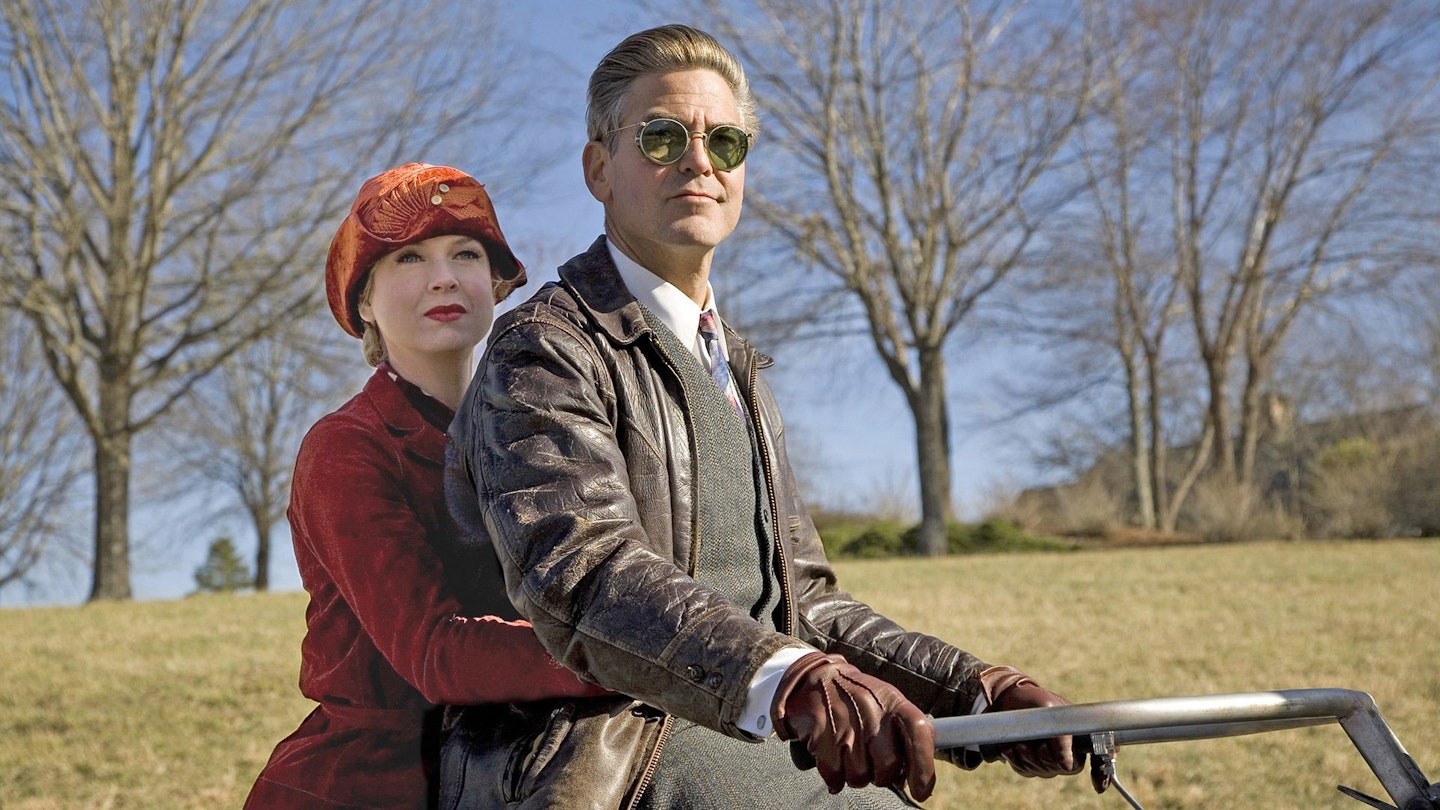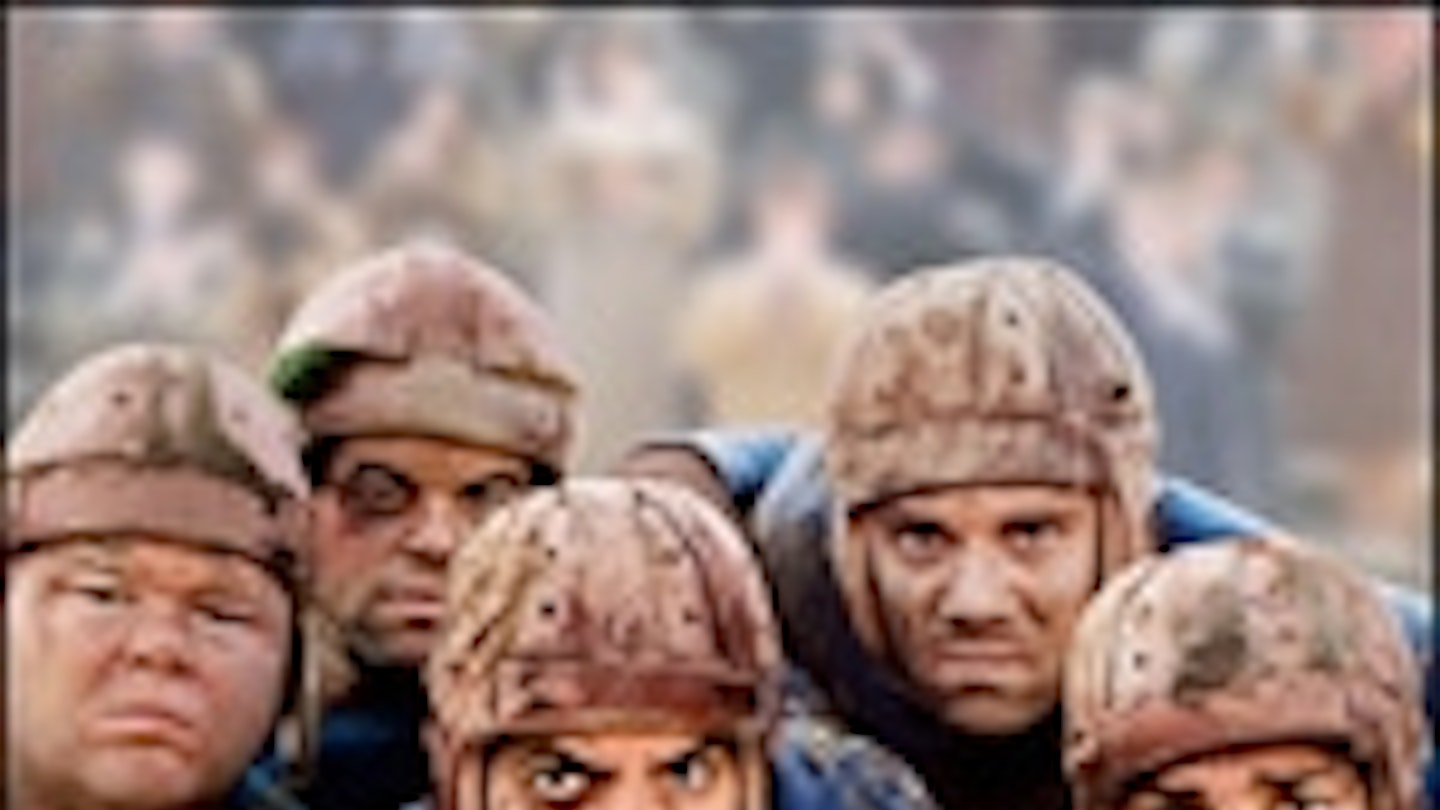Given that no one outside of the United States either likes, understands or gives a flying fart about American football (or ‘football’ as it's known there, despite the fact the ball is kicked perhaps three times in every interminable game), films that make the sport their focus have struggled to find an audience in the wider world. Leatherheads, George Clooney's third effort as a director, had a chance of avoiding that particular pitfall thanks to its roaring ‘20s setting, amid the rough-and-tumble pioneering days of the professional leagues and a world away from the absurdly over-hyped, mercenary circus that is today's NFL. Sadly, the quality ingredients don’t quite produce the fluffy comedy soufflé we might have hoped for.
Clooney's last outing behind the camera was also a period piece, but this, a good-natured, rose-tinted rom-com, could hardly be more different from the sombre, morally pensive Good Night And Good Luck. Once again, however, Clooney takes a starring role, this time as Jimmy 'Dodge' Connelly. He’s a wily gridiron vet, well past his sell-by date, who recruits star college player (and war hero to boot) Carter 'The Bullet' Rutherford (The US Office’s John Krasinski) to bolster his team of beat-up bruisers in an attempt to save both the ailing club and the professional game itself. Love rears its ugly head when tough-talking Chicago Tribune reporter Lexie Littleton (Renee Zellweger) shows up to write a story on Carter and – wouldn't you know it! – Dodge and The Bullet both fall hard.
It’s a neat little set-up with echoes of Bull Durham or The Philadelphia Story. It also has something to say on the nature of heroism (is Carter's Sergeant York act all it's cracked up to be?) and the commercialization of sport: The Bullet brings the crowds, but along with them come the advertisers, the money men and the dead hand of the rulebook. The whole endeavour should run like clockwork, but somehow stubbornly fails to get ticking.
The intention is clearly the frothy, crash-bang energy of classic screwball: Bringing Up Baby and, of course, His Girl Friday, both of which starred Cary Grant, to whom Clooney has often been compared. The trouble is that the film is so convinced of its inherent charm that it never works on charming us, coming off instead as smug and lazy. Scenes between Clooney and Zellweger, obviously modelled on the machine-gun repartee of Grant and Rosalind Russell in His Girl Friday, are astonishingly sluggish for two such seasoned players. And they're done no favours by clunky dialogue that is seldom as cute as it thinks it is. Elsewhere, set pieces that should bowl along with slapstick vigor – a speakeasy raid, a police chase and the kind of rambunctious bar brawl where bottles are smashed over heads with no ill effects – are flat and lethargic.
If the film itself can be accused of slacking, the same cannot be said of Clooney, who lays on the twinkly rogue schtick with a front-loader, exaggerating every cheeky grin, comedy grimace and ironic shrug like a Vaudeville ham playing to the peanut gallery. He's way too good for this kind of carry-on and should know by now (as Cary Grant certainly did) that suavity is a quality best served subtle. Perhaps a less partial director would have pointed that out.



